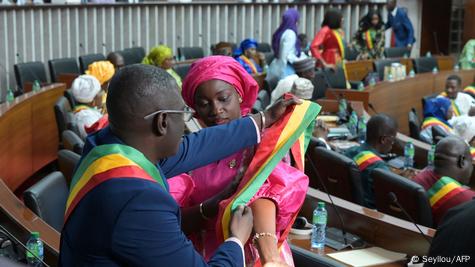
Senegalese civil society groups have pushed back fiercely against comments made by Prime Minister Ousmane Sonko, who announced plans to prohibit external funding for NGOs during the inauguration of the Pastef party’s National Council.
Sonko claimed that many civil society organisations (CSOs), though officially independent, operate under foreign influence and use donor funds to shape political discourse and impose values “contrary to the democratic choices of the Senegalese people.”
He accused Western countries of maintaining tight control over their own civil spaces while encouraging unchecked interference abroad. “There is a double standard,” he said.
The remarks triggered immediate backlash.
Critics say the proposal to restrict foreign funding is not about sovereignty, but rather an attempt to silence dissent and consolidate state control over civic expression.
At the forefront of the resistance is FRAPP, a prominent activist movement. In a sharply worded statement, it condemned Sonko’s remarks as an assault on civic freedoms.
“The state cannot and must not dictate which voices are legitimate,” the group said. “Civil society must remain independent — not subordinated to the whims of political power.”
FRAPP referenced the 2025 national dialogue, which had aimed to define civil society’s role.
Instead, it said, political forces “monopolized” the debate, sidelining organisations working on grassroots social issues.
Ousmane Sonko’s description of NGOs as “on life support” has also been forcefully rejected.
“True civic strength,” FRAPP argued, “lies in the ability to protest, propose, and remain independent.”
Transparency advocate Birahim Seck also weighed in, accusing the Prime Minister of targeting civil society to deflect from political challenges.
In a statement posted online, he declared: “Civil society existed before Pastef and will continue after it.”
He warned that frustration and populist rhetoric were no substitutes for sound governance.
What began as a political announcement has now exposed deeper divisions between the government and Senegal’s once-allied civic actors.
With legislation on foreign NGO funding now looming, a lasting fracture appears to be emerging — one that could redefine Senegal’s democratic landscape.



